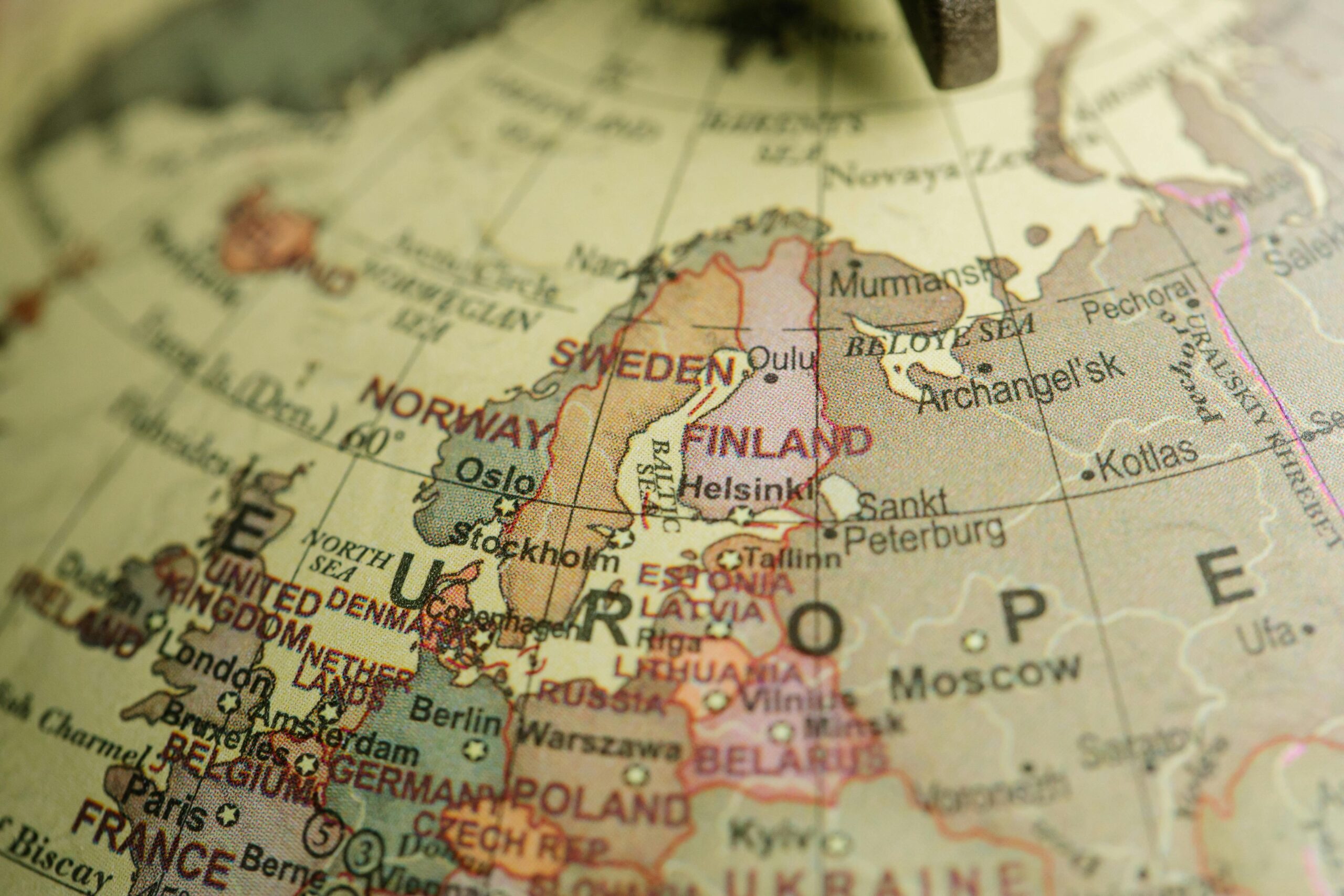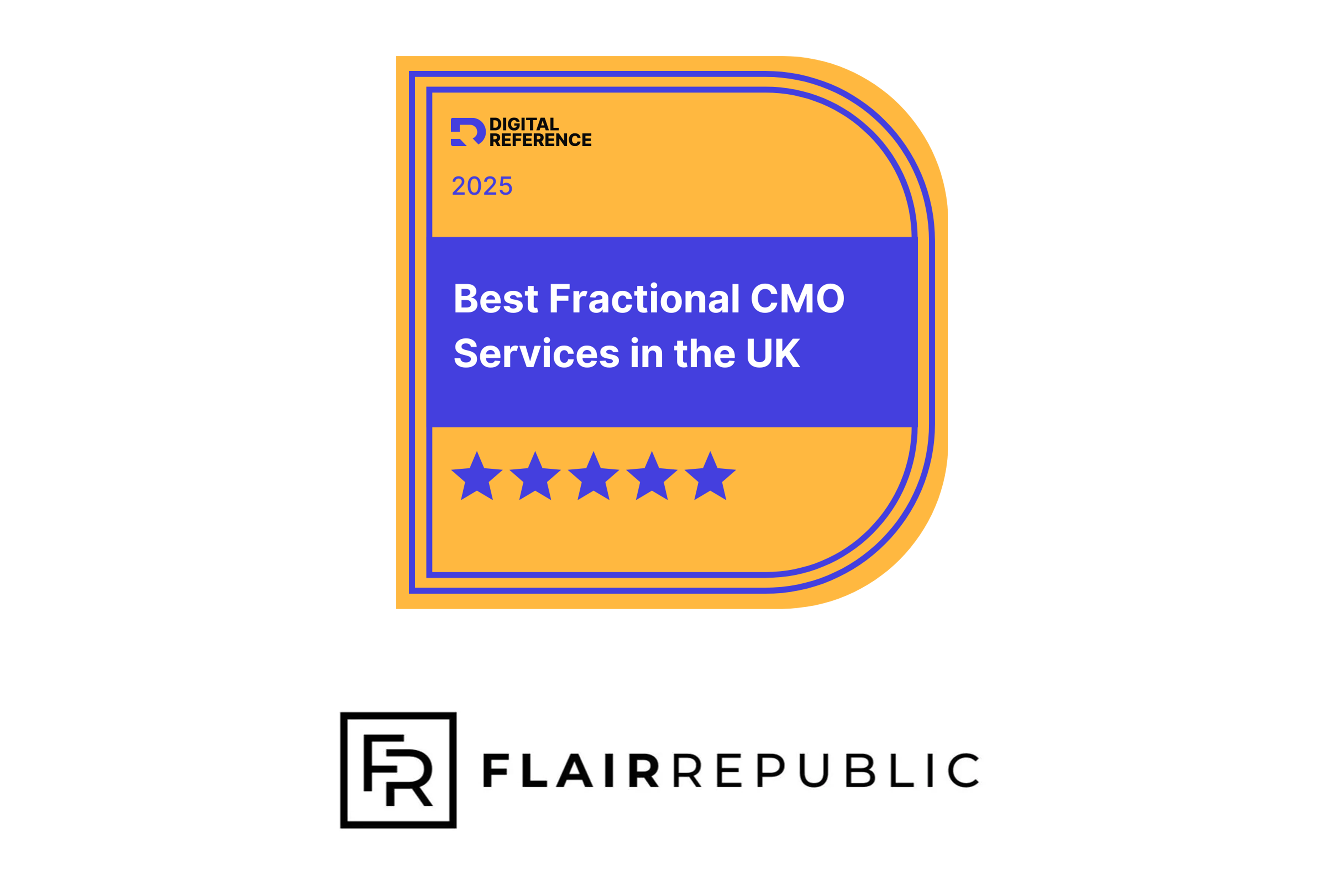
The Rise of the Fractional CMO in Europe
Contents
Marketing leadership across Europe is undergoing a quiet revolution. Traditionally, the role of the Chief Marketing Officer (CMO) has been synonymous with big budgets, full-time salaries, and high-stakes boardroom influence. But over the last five years, and especially since the pandemic, companies across the continent are rethinking how they access top-tier marketing expertise.
That’s because of the new working model known as the fractional CMO – a part-time, often contract-based senior marketer who brings executive-level strategy without the costs or commitments of a full-time hire. This shift is a structural evolution in how businesses think about marketing leadership.
In this blog, we explore the rise of the fractional CMO model in Europe, the business and cultural dynamics fuelling it, and the specific uptake in markets like France, Germany, Spain and Italy among others.
What is a Fractional CMO?
A fractional CMO is an experienced marketing leader hired to work with a business on a part-time or project basis. They typically:
- Develop and lead high-level marketing strategy
- Oversee internal teams or external agencies
- Implement performance frameworks and data-driven decision-making
- Serve as a bridge between marketing and other departments
What differentiates them from consultants is their deep involvement in the business, often joining executive meetings, reporting to the CEO, and shaping long-term marketing goals. Unlike interim CMOs, fractional CMOs aren’t just there to fill a gap; they represent a leaner, more adaptive model for strategic growth.
Why Is the Fractional CMO Model Growing in Europe?
1. The Economic Pressure to Do More with Less
From Brexit to the energy crisis and inflation, European businesses have faced significant economic uncertainty. For SMEs and scaleups, especially in technology, SaaS, and eCommerce, the ability to access senior marketing leadership without paying six-figure salaries has become an attractive proposition.
Fractional CMOs allow companies to control costs while accelerating strategic thinking – a win-win in turbulent times.
2. Globalisation and Remote Work
Post-pandemic, geography is no longer a barrier. A company based in Barcelona can hire a fractional CMO from Amsterdam, or a Berlin startup might bring in a marketing leader from London.
The rise of remote collaboration tools and a more flexible talent pool means European firms can shop for expertise continent-wide – or even globally – without relocation costs or permanent contracts.
3. Complexity of the Modern Marketing Landscape
With the proliferation of channels – TikTok, programmatic, influencer marketing, AI-powered tools – it’s harder than ever for one team to do it all. Fractional CMOs bring a meta-view of the marketing stack, helping businesses integrate brand, performance, content, and CRM strategy into one cohesive system.
The Pan Europe Fractional CMO Landscape
Let’s take a look at how this model is unfolding across specific countries.
France: From Artisan to Agile
France has long favoured the traditional, top-down corporate model, especially in large enterprises. But among French startups and mid-size firms, the appetite for leaner executive structures is growing fast.
Key Drivers in France:
- Boom in B2B SaaS: The French tech ecosystem (with hubs in Paris, Lyon, and Bordeaux) has exploded. Startups like Aircall, Swile, and Qonto are maturing, seeking scalable marketing leadership without overcommitting.
- Shift in Work Culture: French professionals – including executives – are embracing more flexible, project-based work, partly fuelled by remote working norms and increased global competition.
- Government Incentives: Through programmes like La French Tech, startups are being encouraged to scale rapidly, and fractional CMOs often help structure go-to-market strategies with limited budgets.
Cultural Insight: In France, relationship-building and communication style matter deeply. Fractional CMOs who understand the nuances of French business etiquette – balancing assertiveness with diplomacy – often thrive.
Germany: Precision, Process and Performance
Germany, Europe’s largest economy, traditionally leans conservative in hiring and operational models. Yet, its thriving Mittelstand (mid-sized companies) and booming tech/startup scene in Berlin, Munich, and Hamburg are shifting gears.
Key Drivers in Germany:
- Engineering-Led Culture: Many German firms are product-heavy and struggle to build strong marketing teams internally. Fractional CMOs with a data-driven, engineering-compatible mindset are in high demand.
- B2B Dominance: From manufacturing to SaaS, Germany has a strong B2B core. Here, marketing must support sales cycles, channel partners, and events – areas where fractional CMOs can implement structured systems quickly.
- Talent Scarcity: Germany’s tight labour market means senior marketers are hard to come by, especially for non-Berlin firms. Hiring a fractional CMO from abroad is often easier and faster than recruiting locally.
Cultural Insight: Germans expect clarity, consistency, and results. The most successful fractional CMOs here combine creativity with KPI-led rigour, building long-term trust by proving early wins.
Spain: Flexibility Meets Growth Ambition
Spain, with its entrepreneurial vibrancy and global ambition, has become fertile ground for fractional executives. From Barcelona’s startup ecosystem to Madrid’s corporate hubs, companies are using flexible leadership to bridge the gap between innovation and scale.
Key Drivers in Spain:
- Startup Surge: Spain has become one of Europe’s fastest-growing tech scenes, thanks to improved access to venture capital and government support. Many startups don’t yet need a full-time CMO but require senior guidance.
- International Expansion: Spanish firms are increasingly targeting Latin American markets. Fractional CMOs with international experience are helping them tailor messaging, positioning, and partner strategies abroad.
- Workforce Flexibility: Spanish businesses are increasingly open to project-based talent, aided by an uptick in freelance culture and platforms that support fractional work.
Cultural Insight: Spaniards value collaboration and warmth in leadership. A fractional CMO who builds relationships, not just strategies, will win over teams and founders alike.
Italy: Balancing Tradition with Transformation
Italy’s business culture is steeped in tradition – from family-owned enterprises to regionally rooted brands – but that’s precisely why the rise of the fractional CMO is gaining traction. Many Italian companies are realising they must modernise to compete in global markets, and a flexible marketing leader often becomes the bridge between heritage and innovation.
Key Drivers in Italy:
- Family Business Transition: Italy has a large number of second- and third-generation family businesses, particularly in fashion, food, manufacturing, and design. These firms are often looking to evolve without losing their identity – a space where fractional CMOs can help reposition legacy brands for modern audiences.
- Export-Led Growth: Italian companies increasingly look abroad to drive growth, especially in North America and Asia. Fractional CMOs with international go-to-market experience are being brought in to align messaging, select export-ready channels, and manage multilingual content strategies.
- Digital Catch-Up: While Italy has lagged behind northern Europe in digital adoption, there’s now a strong push – particularly post-COVID – to digitise marketing and sales operations. This creates an opening for fractional leaders who can introduce scalable digital infrastructure without overhauling internal teams too quickly.
Cultural Insight: In Italy, personal relationships and trust are paramount. Fractional CMOs who invest time in understanding a company’s roots – and who respect internal hierarchies – are more likely to succeed. There’s often a need for diplomacy, storytelling, and a sensitivity to regional identity.
The United Kingdom: Leading the Pack
Though no longer in the EU, the UK remains a pivotal European player. In fact, the UK market was an early adopter of the fractional CMO model, especially in London’s financial and tech ecosystems.
Key Drivers in the UK:
- Mature Startup Ecosystem: With hubs in London, Manchester, and Cambridge, UK startups have embraced fractional leadership in both marketing and operations.
- High Talent Costs: London salaries for CMOs can exceed £150k. Hiring a fractional CMO for 2–3 days a week makes financial sense, particularly in the post-Brexit economy.
- Outsourcing Culture: UK businesses are accustomed to using freelancers and consultants, making the leap to fractional leadership a natural one.
Cultural Insight: UK businesses prize professionalism and accountability. The best fractional CMOs offer polished communication, structured plans, and frequent performance updates.
The Nordics: Innovation-First, Hierarchy-Lite
In countries like Sweden, Denmark, and Finland, the rise of the fractional CMO is closely tied to a culture that values flat hierarchies, innovation, and internationalisation.
What’s Fueling the Nordic Shift:
- Global Startups: Firms like Klarna, Spotify, and Wolt have inspired a generation of Nordic entrepreneurs to think globally from Day 1.
- Short Hiring Cycles: Nordic firms move fast. Fractional CMOs can be onboarded in weeks, helping teams go to market quickly without structural bottlenecks.
- English as a Default: With high English fluency, Nordic companies can easily hire external CMOs from the UK, Ireland, or the US without language barriers.
Cultural Insight: The Nordics value humility, collaboration, and transparency. A hierarchical or overly assertive style may backfire. Fractional CMOs must integrate seamlessly into teams.
Who’s Hiring Fractional CMOs?
Across Europe, the most common adopters of fractional CMOs include:
- Seed-to-Series B Startups – who need strategy but can’t yet afford a full-time CMO
- SMEs – especially those undergoing digital transformation or expanding internationally
- Private Equity and Venture Capital firms – who insert fractional talent into portfolio companies to improve performance pre-exit
- Founder-led companies – where the founder is still handling marketing and needs executive-level offloading
A New Era of Leadership
The rise of the fractional CMO in Europe is more than a hiring trend. It represents a philosophical shift in how businesses see leadership – from fixed to flexible, from hierarchical to collaborative, from static to adaptive.
As economic pressures persist, marketing complexity grows, and remote work becomes the norm, expect to see more companies, from Seville to Stockholm, embracing the fractional model as a strategic advantage, not a temporary fix. The future of marketing leadership in Europe is not just full-time or freelance. It’s fractional, and it’s here to stay.
Need help implementing a fractional CMO strategy in your European business? Get in touch with our experienced marketing leaders who can guide your team through growth, scale, and transformation, without the full-time cost.





